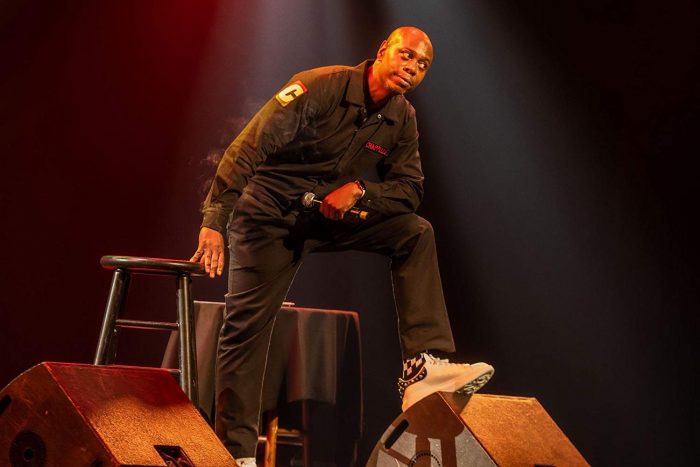
Ever since Dave Chappelle’s Sticks & Stones Netflix special debuted, discussions of cancel culture have generated heat. Basically, cancel culture is the latest term in regards to how groups of people call for a boycott because they believe a person or organization said or did something offensive, and should be held accountable by stripping them of their livelihood. Critics on the right call it a new form of political correctness. While a good percentage of cancel culture are orchestrated by left leaning individuals and organizations, the right in America has also orchestrated boycotts on individuals and organizations that they don’t agree with. For example, back in 2018, an alt-right group found some old tweets of James Gunn making jokes about sexual assault and it spread like wildfire. As a result, James Gunn was temporarily fired from Disney but was later re-hired to direct the third installment to Marvel’s Guardians of the Galaxy.
How it Relates to Anime
Cancel Culture is most notably discussed in comedy, where the art form provides creative freedom to break boundaries. While there are certain social issues that are prevalent in America that allow cancel culture to exist, some of those issues aren’t as emphatically present or explored differently in Japanese society (which we’re going to get to). However, there is one recent event in how cancel culture significantly relates to anime in America. Upon the initial drafting of this article, we read that a Texas court rejected Vic Mignogna’s 17 claims against Funimation.
For the past year, the #MeToo movement and cancel culture have been going hand-in-hand. If such individuals who are accused of such serious allegations are proven to be true, then bringing their actions to the public should certainly be an appropriate step. As many of us already know, Mignogna is no longer with Funimation and considering the courts rejected 17 claims of his lawsuit, then in this instance, cancel culture, which tends to carry negative connotations, can be seen in a more favorable light, and hopefully it can prevent future incidents in and out of the industry. If the industry continues to support individuals like Mignogna without addressing his accusations, it could prevent female actresses from entering the industry.
Outside the US, cancel culture in relation to anime has been applied differently in lets say South Korea. In 2014, a South Korean court ordered an exhibition in dedication to One Piece be cancelled due to how a drawing displayed in the exhibit allegedly featured the Japanese imperial flag. In South Korea, the flag is viewed as a symbol of aggression due to Japan’s colonization of the Korean peninsula in the first half of the 20th century. South Korean TV already has a legal limit over how much Japanese TV they can broadcast and due to their troubled relations, cancel culture as it pertains to South Korea could potentially hurt the anime market in that region. Also, with Prime Minister Shinzo Abe no longer recognizing them as a white listed trade partner, it could consequently hurt anime in that nation even more.
Cancel Culture in Japan
Cancel culture does exist in anime does exist in Japan as well. With the Rurouni Kenshin Hokkaido Arc, the series was put on hiatus when Nobuhiro Watsuki was facing charges for possession of child pornography. While the series resumed in Japanese publications, American publications still refuse to publish it. Oishinbo, is another manga that has been on a controversial hiatus since 2014 due to how it addressed Fukushima when the main character suffers from nosebleeds during his visit there. It generated enough controversy to the point that even the government had to intervene! In some instances, it’s not pressure from the public that pushes for cancel culture but from the government as well as implied in this instance.
However, cancel culture as we see it in America, has been applied in Japan in recent times. Back in 2018, there was supposed to be an anime adaptation to New Life+, based on the light novel series MINE. Upon its announcement, tweets that the original author made between 2012 and 2015 revealed he made bigoted comments about Koreans and Chinese, and that the main character kills 3,000 Chinese people in the original novel. When these were brought to the forefront, the studio immediately cancelled the anime and the publisher suspended shipments of his novels. The author apologized and said he will rewrite his novels.
Final Thoughts
In the era of social media, mobilizing such movements are now easier than ever, and some can easily be agenda oriented to the point some call it censorship, especially as the controversy pertains to comedy. As for anime, in the US, it can partially be about censorship, but when it comes to instances such as Mignogna, it’s all about justice and human decency. With Rurouni Kenshin, we all understand that people love its story and action, but does being a good artist and storyteller erase one’s crimes? Certainly not! While many Westerners can’t agree with how the Japanese system dealt with Watsuki, we applaud Viz for not continuing English publications of the present story.
If certain individuals are proven to have conducted themselves illegally in a court of law, then we agree that they should be cancelled. A good number of us can agree that cancel culture is an extension of how everyone’s offended by everything. We’re not here to call anyone snowflakes, but we have to agree that a line has to be drawn. When one maliciously makes or acts in a manner that isn’t for comedic or creative purposes, they should be held accountable. But when an issue is used for entertainment/informative, we also shouldn’t jump to conclusions and should give the artist a chance to express what they mean as well. As long as the boundaries are crystal clear, then cancel culture shouldn’t affect art and entertainment. Of course, nobody can agree what those boundaries are.

